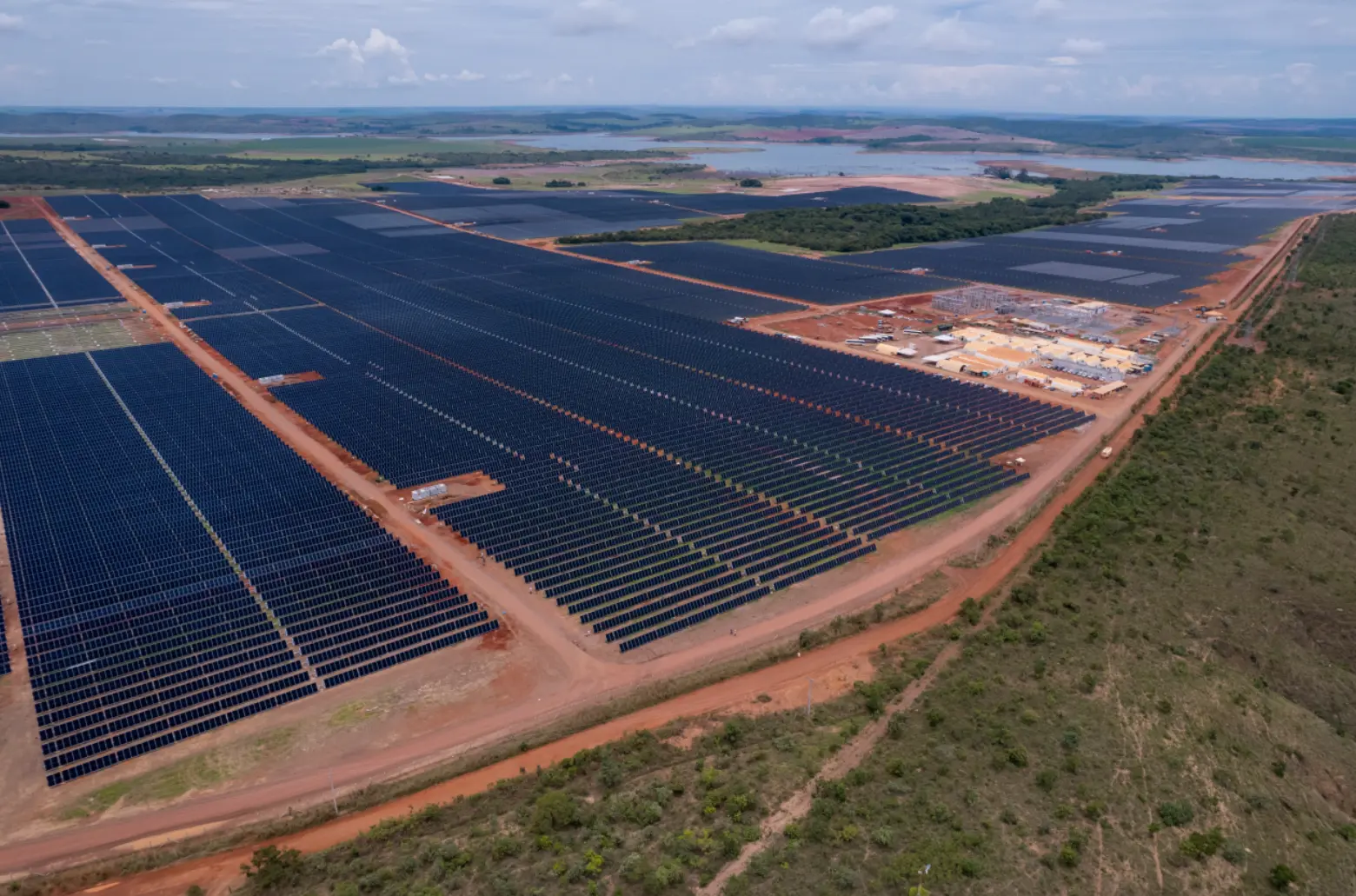Atlas Renewable Energy’s big bet on renewable energy development in Colombia.

Atlas Renewable Energy plans to develop solar projects amounting to 1,000 megawatts across various regions in Colombia over the next five years. These projects will contribute to diversifying Colombia’s energy matrix.
Unconventional renewable energy sources are rapidly gaining momentum across Latin America. According to the “Latin American Successes in the Energy Transition” report by Zero Carbon Analytics, “investment in renewable energies has surged exponentially in the region over the past decade, positioning its wind and solar markets to double by 2027 compared to current levels.”
Colombia is among the primary beneficiaries of this trend. The political commitment of recent administrations to foster such projects, coupled with market demands and favorable public policies offering attractive incentives, positions the country as an appealing destination for investors in the renewable energy industry.
Both domestic and international companies are actively developing wind, solar, and photovoltaic projects across various departments of this Andean nation. Currently, 500 megawatts of renewable energy capacity are installed, with an additional 1,240 megawatts nearing operational status.
Currently, the Colombian energy matrix is distributed, with 68% of the energy coming from large hydroelectric plants, accounting for 68% of the total. Thermal plants fueled by coal and fossil fuels contribute 28%, while unconventional renewable energy sources, like wind and solar energy, make up less than 2%. However, during climatic events such as El Niño, characterized by intense heat conditions, hydroelectric generation plummets to 35%, necessitating increased reliance on thermal plants, which are more expensive.
Consequently, diversifying this energy mix is critical to ensure that approximately 10-15% of electricity generation stems from unconventional sources, thereby providing greater resilience and reliability to the country’s energy system.
Atlas Renewable Energy is dedicated to the clean energy transition. Founded in 2017, it’s the fastest-growing Latin American Independent Power Producer (IPP) in corporate PPAs, with operations in Brazil, Chile, Uruguay, Mexico, and more recently, Colombia, and Spain.
Ruben Borja, Atlas Renewable Energy’s Country Manager for Colombia, elaborated on the company’s planned projects in the country, initially focused on solar energy, and the benefits of the strategic alliance with Isagen, one of the nation’s leading energy generators and marketers.
A Strategic Alliance
With Isagen, Atlas will develop about 1,000 MW of clean, renewable energy projects over the next 5 years in Colombia. “We are working on large-scale projects, larger than 100 MW, and identifying the most resourceful regions,” Borja said.
The company aims to start operations in departments along the Atlantic Coast and in Tolima, Valle del Cauca, Caldas, and Risaralda, which all have high solar resources. Moreover, it seeks to ensure accessible transportation routes, distance from protected or reserved areas, and minimal exposure to public order issues.
Expectations are highly positive, given the extensive experience of Atlas and Isagen in the energy sector and unconventional renewable sources. Atlas has over 6 GW of contracted solar and wind projects across Mexico, Chile, Brazil, Uruguay, and Colombia, with 2,700 MW currently in the operational phase. Isagen, on the other hand, operates 19 hydroelectric plants with a 3,000 MW generation capacity and has recently ventured into unconventional renewable sources with its 20 MW Guajira I wind farm.
“We distinguish ourselves in the countries where we operate through our creativity and innovation, which have enabled our growth and expansion, but also through alliances with the most prominent players in the energy sector and the pursuit of efficient financing solutions that ensure our projects are competitive and deliver the best energy to the end-user,” Borja emphasized.
Experience in Social Licensing and ESG Standards
Another area of expertise for Atlas is working in the regions and acquiring the social licenses required. To this end, the company boasts extensive experience in developing social and environmental initiatives focused on education and employability that involve the community and a team of experts in applying ESG criteria.
Borja said that Atlas is upholding the elevated standards that have solidified its international reputation, exceeding the regulatory requirements and expectations of the countries where it operates. “Our extensive experience and commitment to excellence have garnered us over 18 accolades for our community-focused initiatives,” he affirms with pride. The company’s dedication to surpassing industry norms demonstrates its resolute commitment to sustainable and socially responsible practices.
Some of the programs implemented in Latin American countries include the construction of digital classrooms, provision of computers and tablets to children and youth, support for public libraries and hospitals, and programs promoting gender diversity and greater participation of women in technical roles during project construction.
Conclusions
Colombia has a strong commitment to developing unconventional renewable energy sources, such as wind and solar energy, to diversify its energy matrix and reduce reliance on hydroelectric generation, which can be impacted by climatic phenomena like El Niño, creating significant stress.
The goal is for the country to transition from less than 2% participation in energy generation from unconventional renewable sources to over 10% within just a few years. To achieve this, the arrival of domestic and foreign investors is necessary to develop and operate such projects.
Atlas Renewable Energy is one of those investors. The alliance with Isagen has enabled it to become an active player in Colombia’s industry and commerce the development of initial projects equivalent to 1 GW of energy generation. Moving forward, the company will be able to operate independently and expand its reach to new locations, clients, and markets within the country.
For Borja, the companies that are resilient, understand the market, decide to stay and commit to the development of unconventional renewable energy projects, will contribute to the energy transition process, overcoming obstacles and closing the gap between supply and demand to provide a more reliable and efficient energy service to all users.
Key Points:
-Atlas Renewable Energy plans to develop 1,000 megawatts of solar energy projects over the next five years in partnership with Isagen.
-The company aims to contribute to diversifying Colombia’s energy matrix, the transition process, and closing the supply-demand gap.
-The participation of unconventional renewable energy sources in Colombia’s energy matrix does not exceed 2%. With the arrival of domestic and foreign investors, it is expected to reach 10% by 2028.
This article was created in partnership with Castleberry Media.. At Castleberry Media, we are dedicated to environmental sustainability. By purchasing Carbon Certificates for tree planting, we actively combat deforestation and offset our CO₂ emissions threefold.
Share This Entry


